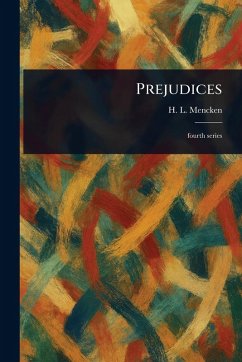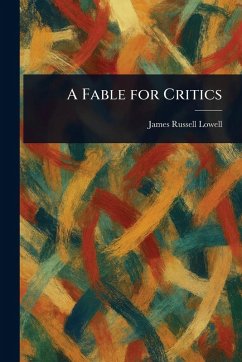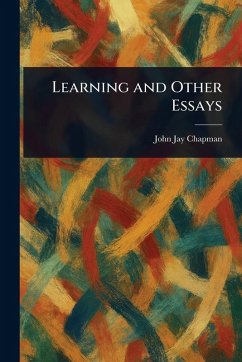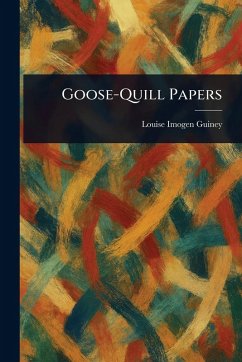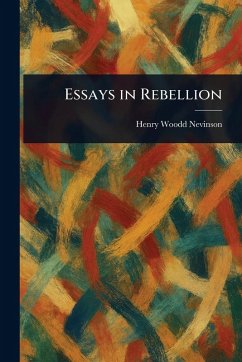
Prejudices, Fifth Series

PAYBACK Punkte
10 °P sammeln!
H. L. Mencken's "Prejudices, fifth series" is a powerful collection of essays showcasing the author's signature wit and sharp social criticism. A master of satire, Mencken fearlessly dissects the foibles and hypocrisies of early 20th-century American society, tackling a wide range of cultural and political topics with characteristic irreverence. This volume offers a compelling glimpse into the intellectual landscape of the time, revealing Mencken's often controversial opinions on everything from literature and art to democracy and religion. His essays remain relevant today for their insightful...
H. L. Mencken's "Prejudices, fifth series" is a powerful collection of essays showcasing the author's signature wit and sharp social criticism. A master of satire, Mencken fearlessly dissects the foibles and hypocrisies of early 20th-century American society, tackling a wide range of cultural and political topics with characteristic irreverence. This volume offers a compelling glimpse into the intellectual landscape of the time, revealing Mencken's often controversial opinions on everything from literature and art to democracy and religion. His essays remain relevant today for their insightful observations on human nature and the enduring challenges of modern life. As a significant contribution to American literary criticism and philosophical thought, "Prejudices, fifth series" is a testament to Mencken's enduring legacy as one of the nation's most influential and provocative voices. This meticulously prepared print edition makes Mencken's powerful and humorous essays accessible to all. This work has been selected by scholars as being culturally important, and is part of the knowledge base of civilization as we know it. This work is in the public domain in the United States of America, and possibly other nations. Within the United States, you may freely copy and distribute this work, as no entity (individual or corporate) has a copyright on the body of the work. Scholars believe, and we concur, that this work is important enough to be preserved, reproduced, and made generally available to the public. We appreciate your support of the preservation process, and thank you for being an important part of keeping this knowledge alive and relevant.





